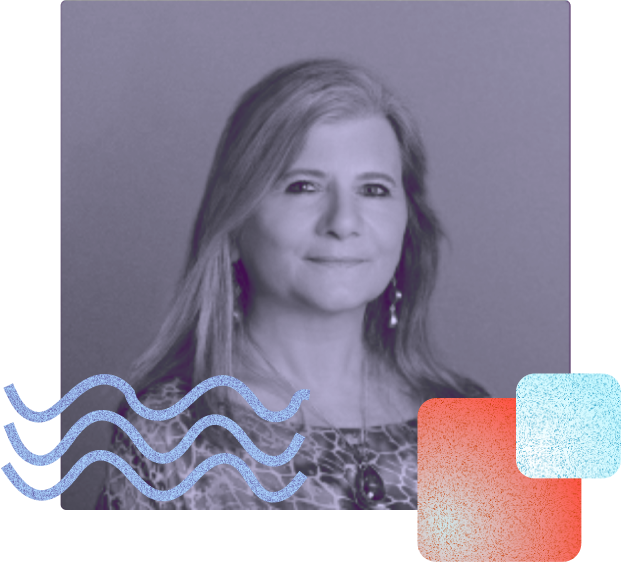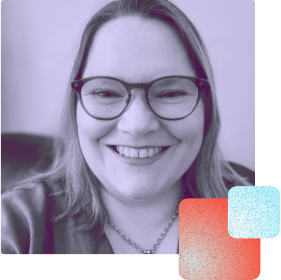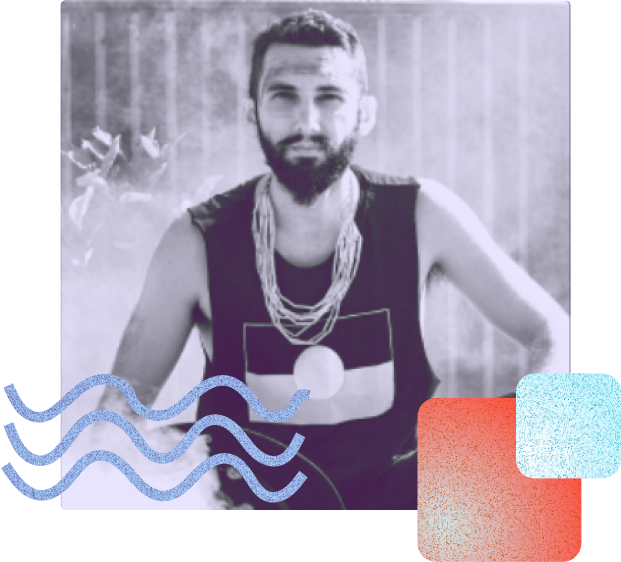Welcome to the Open Education Global (OEGlobal) Conference 2024!
We are thrilled to present the impressive lineup of keynote speakers who will share their expertise and insights at this year’s event. Each of these distinguished individuals brings a unique perspective and approach to open education, and we are excited to have them join us in shaping the conversation around this critical field. Join us as we explore the latest trends and innovations and discover how we can work together to make education accessible to all.
Penny Jane Burke
Director, Centre of Excellence for Equity in Higher Education, University of Newcastle
Professor Penny Jane Burke is UNESCO Chair of Equity, Social Justice and Higher Education and Director of the Centre of Excellence for Equity in Higher Education (CEEHE) at the University of Newcastle, Australia. She holds the position of honorary Global Chair of Social Innovation at University of Bath, honorary professor at University of Exeter and has held the posts of Professor at the University of Roehampton, the University of Sussex and Reader at the Institute of Education, University of London.
Professor Burke’s personal experience of surviving domestic violence and returning to study has fuelled her tenacious commitment to challenging persistent and insidious inequities in higher education. The praxis-based CEEHE in 2015 was founded upon her development of Pedagogical Methodologies, designed to generate transformative change. Her work has served as a model for scholars and practitioners across the world and has had a profound and transformative impact in the field.
Professor Burke has generated over $4,000,000 in research funding and has published extensively in the field of equity and social justice in education (with over 2100 citations). Her authored books include Accessing Education effectively widening participation (Burke, 2002, Trentham); Reconceptualising Lifelong Learning (Burke & Jackson, 2007, Routledge), The Right to Higher Education: Beyond widening participation (Burke, 2012, Routledge), Changing Pedagogical Spaces in Higher Education (Burke, Crozier & Misiaszek, 2017, Routledge) and Evaluating Equity in Higher Education (Burke, Hayton and Stevenson, 2018, UCL IoE Press). As the recipient of the prestigious UK Higher Education Academy’s National Teaching Fellowship award in 2008, Professor Burke has been dedicated to the development of high-quality educational opportunities for students from underrepresented backgrounds through research, practice and professional learning and her esteem in the international field is indicated by invited addresses across the globe (e.g. Myanmar, South Africa, China, Italy, Spain, India, Serbia, California, Sweden, Greece, Mexico and across the UK and Australia). She was Executive Editor of Teaching in Higher Education from 2010 – 2020 and is now co-Editor of the Bloomsbury Gender and Education Book series. Her standing in Australia is indicated by her invitation by the Minister of Education to join the Equity in Higher Education Panel, tasked with creating a 5-year Roadmap for Equity in Higher Education.
Open to Social Justice Transformation: What has higher education got to do with it?
In this keynote, I explore socio-personal histories of open higher education in conversation with commitments to facilitate social justice transformation. More specifically I consider the role of higher education in being-and-doing ‘open’ and how this relates to struggles over the right to knowledge, knowing and learning. A line of questioning I pursue is: what are the implications of different articulations of open-ness for the capacity of higher education to contribute to social justice transformation – and what constitutes, limits and enables this? Considering the possibilities for higher education to open up time, space and resources for equitable participation in transformative processes, I argue it is time for social justice praxis, drawing on my new book with Dr Matt Lumb. My overarching aim is to utilise the keynote for collective questioning of the possibilities for open-ing education for social justice transformation.

Siobhan Leachman
The OEGlobal24 Organising Team is delighted to announce that Siobhan Leachman will deliver one of the three keynote addresses at the 2024 OE Global Conference. Siobhan is an open knowledge advocate and a Wikimedian focused on natural history.
Siobhan is a prolific editor of Wikipedia and volunteers for GLAM (Galleries, Libraries, Archives and Museums), citizen science and digital humanities projects. Her mission in life is to connect everything. She advocates for open access and open Creative Commons copyright licences and defends the public domain. Her work includes citizen science, crowdsourcing, Wikipedia species articles and much more. In 2018, she was awarded the Auckland War Memorial Museum Medal and is a Companion of the Auckland War Memorial Museum. In 2023, she was awarded the Wikimedia Laureate Award.
Her participation in and presentations at conferences have been extensive, including VALA, the New Zealand National Digital Forum, WikiDataCon, and Citizen Science Australia 2023.
From Passive Absorption to Empowered Co-Creation: A Journey into the World of Open Knowledge
In this presentation, I hope to broaden attendees’ perspectives on the
transformative power of open. Drawing from my personal journey, I will
illustrate how open community science initiatives, digital libraries
and archives and the Wikiverse have not only fostered lifelong
learning but also facilitated the collaborative creation of knowledge
that benefits all. I will delve into the significance of community
openness and highlight how attitudes of generosity and inclusiveness
have inspired me to engage in knowledge co-creation. I will also
explore how community openness can elevate the recognition of
Mātauranga Māori (Māori ways of knowing) and how this impacts the
sharing of indigenous knowledge. Furthermore, I will examine how
embracing openness as a practice can become a fundamental aspect of
both personal and professional life. I will share insights on how
adopting an open approach has transformed me into a dedicated advocate for openness, how the practice of openness influences project
priorities and can enhance the proactive dissemination of knowledge
across multiple platforms.

Robert dhurwain McLellan
We are thrilled to announce that Robert dhurwain McLellan will be the keynote speaker for day one of the OE Global Conference. As a proud Gureng Gureng descendant of the Wide Bay region, Robert brings a wealth of knowledge, experience, and passion.
Robert is a distinguished community researcher and experienced Director, known for his expertise in governance and engagement. He is a graduate of the Australian Institute of Company Directors and a chartered manager, holding fellowship status with the Institute of Managers and Leaders ANZ. His academic credentials are further highlighted by his Master of Business Administration from the UQ Faculty of Business, Economics and Law.
Currently, Robert serves as an Industry Fellow of the Faculty of Humanities and Social Science at the University of Queensland and as the Program Manager for the Language Data Commons of Australia (LDaCA), where he is instrumental in building national digital research infrastructure. His professional repertoire also includes extensive work in cultural studies, particularly focusing on Indigenous languages, sociology, arts, and communications.
Robert’s dedication to the development and preservation of arts and cultural capabilities is evident through his roles as a member of the First Nations’ Arts and Cultures Panel (FNACP) with Arts Queensland and the Library Board of Queensland. He is a staunch advocate for truth-telling and advancing the rights and justice of Aboriginal people. His efforts aim to ensure that First Nations voices are authentically valued and embraced across all levels of society.
As a leader, Robert is passionate about building culturally inclusive, honourable, and cohesive communities. His keynote address is anticipated to provide profound insights into the importance of cultural inclusivity and the role of truth-telling in fostering equitable and just societies.
Reclaiming Data, Reclaiming Culture: Indigenous Self-Determination in Digital Research Infrastructure
Effective data governance is critical to Indigenous self-determination, and decision-making that consequently affects the lives of Indigenous individuals, families, and communities. The principle, “nothing about us, without us” underscores the importance of Indigenous engagement in every aspect of data governance. However, historical practices by early explorers, linguists, anthropologists and other researchers have more often violated these rights, leading to the ever-present mistrust of institutions now responsible for the custodianship of Indigenous data/ invaluable cultural heritage.
Currently, Indigenous data assets face vulnerabilities such as loss, limited discoverability, and misuse, including duplication and the over-researching of communities. Indigenous epistemologies have not been authentically valued and embraced within the design of open science principles, contributing to the disproportionate underrepresentation of Indigenous voices within the global scientific discourse.
More recently, global and local collaborations have amplified the perspectives of Indigenous data practitioners, helping to shape frameworks that align with Indigenous worldviews. This shift is aimed at fostering greater autonomy and agency, allowing communities to derive value from data in ways that respect their priorities and cultural ways of being.
How do we ensure the centrality of Indigenous ways of knowing and being within decision-making practices and what does ‘open access’ mean when it comes to the responsible stewardship of Indigenous data?
This presentation explores the role of digital research infrastructures, such as the Language Data Commons of Australia (LDaCA) and the HASS & Indigenous Research Data Commons (HASS & I RDC), in supporting the reclamation and preservation of Indigenous cultural heritage. By enhancing metadata and accessibility, we advocate for a responsive Indigenous data ecosystem that meets contemporary research needs while prioritising the needs of Indigenous communities.

